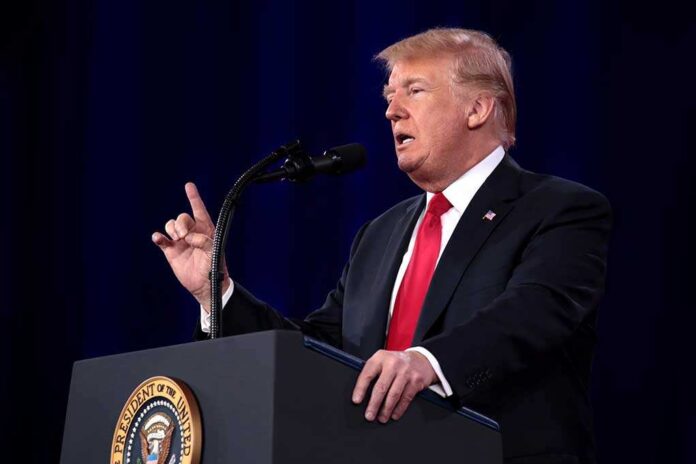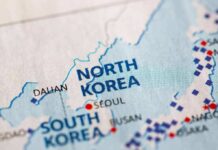
Nationwide injunctions on President Trump’s executive orders spark debate over judicial overreach, national security implications, and the balance of power.
Quick Takes
- Concerns grow over possible constitutional crises stemming from judicial actions against executive orders.
- Nationwide injunctions are cited as hindering executive powers, particularly in national security and immigration.
- Supporters of Trump argue that these actions are politically motivated, echoing international judicial attacks.
- Some Trump allies call for remedial actions, including impeaching judges and removing rogue judicial influences.
Judicial Overreach: A Challenge to Executive Power
Nationwide injunctions against President Trump’s executive orders highlight significant tensions between branches of government. Legal experts have warned of a potential constitutional crisis if courts continue to issue such decisions, which many believe exceed the judiciary’s constitutional limits. These actions, described as politically motivated, could undermine not only the executive’s authority but also national security. Trump’s administration has experienced numerous legal setbacks, attributed in part to court rulings blocking initiatives pivotal to his policy agenda.
President Donald Trump has been vocal about his criticisms, specifically targeting judges who issue nationwide injunctions and restrict his executive capabilities, emphasizing that such judges undermine his decisions on key policies, including immigration and national security. His supporters argue that these judicial actions interfere with the executive’s mandate under Article II, potentially leading to long-term governance challenges.
Nationwide Injunctions and National Security Concerns
Trump and allies, such as Stephen Miller, have argued that liberal judges exhibit judicial overreach. “Under the precedents now being established by radical rogue judges, a district court in Hawaii could enjoin troop movements in Iraq. Judges have no authority to administer the executive branch. Or to nullify the results of a national election,” stated Miller. Some advocates even suggest drastic measures like impeaching judges unfavorable to the administration to protect the executive authority and preserve national integrity.
Despite these challenges, the administration is still adhering to legal norms, appealing decisions that impede its core policies. The broader concern remains whether such judicial interventions can be sustained without significant ramifications for the country’s governance and security.
Unlawful Nationwide Injunctions by Radical Left Judges could very well lead to the destruction of our Country! These people are Lunatics, who do not care, even a little bit, about the repercussions from their very dangerous and incorrect Decisions and Rulings. Lawyers endlessly…
— Donald J. Trump Posts From His Truth Social (@TrumpDailyPosts) March 20, 2025
A Call for Judicial Accountability
Calls for accountability are amplified by Trump, who argues that the judiciary needs checks on its power to ensure adherence to traditional democratic processes. Nationwide judicial rulings are perceived as barriers that could severely affect the executive branch’s ability to carry out its policies and ensure security.
In conclusion, as this judicial-cum-executive tussle unfolds, concerns about maintaining national security and governance continue to grow. The outcomes of these clashes could redefine the balance of power in American governance, raising questions about the judiciary’s scope and the need for potential reforms to restore equilibrium.
Sources:
- Trump administration ramps up rhetoric targeting the courts amid mounting legal setbacks – ABC News
- Trump’s pushback on judges challenges U.S. system of checks and balances | PBS News
- Trump Takes a Blowtorch to These Rogue Judges Trying to Thwart the Will of the People












